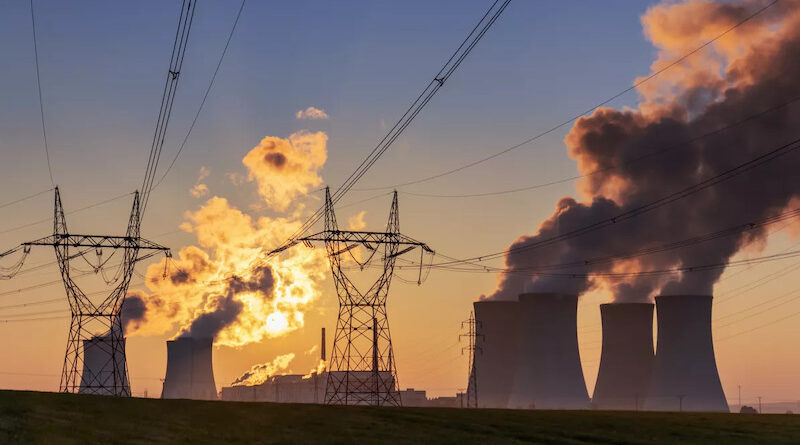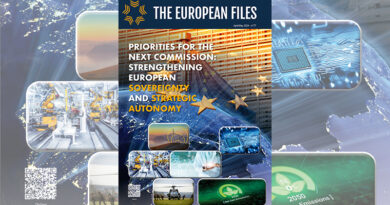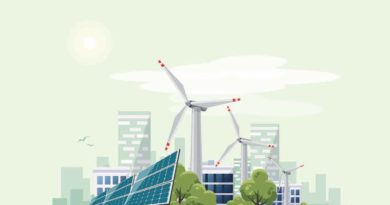
Europe’s energy security: the strategic role of electricity
Three years ago, Russia’s invasion of Ukraine turned the European energy scene upside down. Dependence on Russian gas, long seen as a simple economic constraint, emerged as a major strategic vulnerability. The ensuing crisis forced a radical overhaul of European energy policies, with a refocus on security of supply, diversification of energy sources and accelerated electrification. Today, energy sovereignty has become vital for Europe.
Electricity is the keystone of this sovereignty, not least because we can draw on the strengths that have long been built up in Europe: the electricity system is interconnected, it is largely decarbonised in several countries and is in the process of being decarbonised in all of them, and can rely on a European-based industry, from equipment manufacturers to electricity companies, many of which are among the largest in the world.
A strategy of resilience in the face of geopolitical shocks
The energy crisis of 2022 was a wake-up call: in the space of a few months, Europe reorganised its gas supply channels, increasing the number of agreements with Norway, the United States and Qatar. The development of liquefied natural gas (LNG) terminals has reduced the EU’s dependence on Russian gas from 45% to less than 15%. However, this shift has an economic and environmental cost. LNG is more expensive and has a higher carbon footprint than pipeline gas. That is why Europe must now clearly capitalize on its greatest asset: electricity! Wherever processes and technology allow, we must now electrify on a massive scale! This is a fight we must wage for our competitiveness, for our sovereignty and, because climate change has not been diluted by geopolitics, for the climate!
Europe must get off fossil fuels, and it can! The REPowerEU plan, adopted in 2022, aims to rapidly deploy low-carbon electricity capacity based on two pillars: nuclear and renewable energies.
Electricity grids have been clearly identified as the cornerstone of this deployment, as they connect the decarbonised electricity to consumers, while guaranteeing the stability, flexibility and resilience of the European energy system.
Electricity, the cornerstone of energy security in Europe Europe has acknowledged the need to control its energy destiny. While in recent years a large part of European regulation has been devoted to the production of decarbonised electricity, it is now becoming urgent and essential to electrify the downstream sectors : industry, transport and heating/cooling. Electric cars, heat pumps, electrical processes in industry and the service sector, building control technologies, etc.: our European industry knows how to produce them! Let’s encourage and steer their deployment now, and that’s how we’ll reduce our need for hydrocarbons. Europe’s electrification rate has stagnated at 23% for the past ten years, even though it is expected to account for half of the EU’s final energy consumption by 2040. Meanwhile, China has increased its electrification rate by 7 pp since 2015. Only 31% of the energy consumed by industry is electric, whereas a further 43% could be immediately electrified and a further 14% by 20301 . Let’s set targets and monitor them!
A massive breakthrough in the electrification of uses should be our energy priority
Europe must launch a structured, prioritised and financed plan for the electrification of the industrial, mobility and building sectors, with the aim of reaching 50% by 2040.
At the same time, the transition must remain competitive. Faced with the United States and China, Europe must guarantee its manufacturers affordable and stable electricity. This requires strategic investment planning, greater coordination between Member States and an ambitious industrial policy to develop a European energy technology industry. Three years after the shock of 2022, Europe has embarked on a profound transformation. Energy security is now based on a low-carbon electricity model, supported by nuclear power and renewable energies, and consolidated by modern, interconnected infrastructures. This transformation, which is essential for the continent’s economic and climate sovereignty, must be speeded up if Europe is to have a secure, sustainable and competitive energy future.
____________________________________________________________________________________




